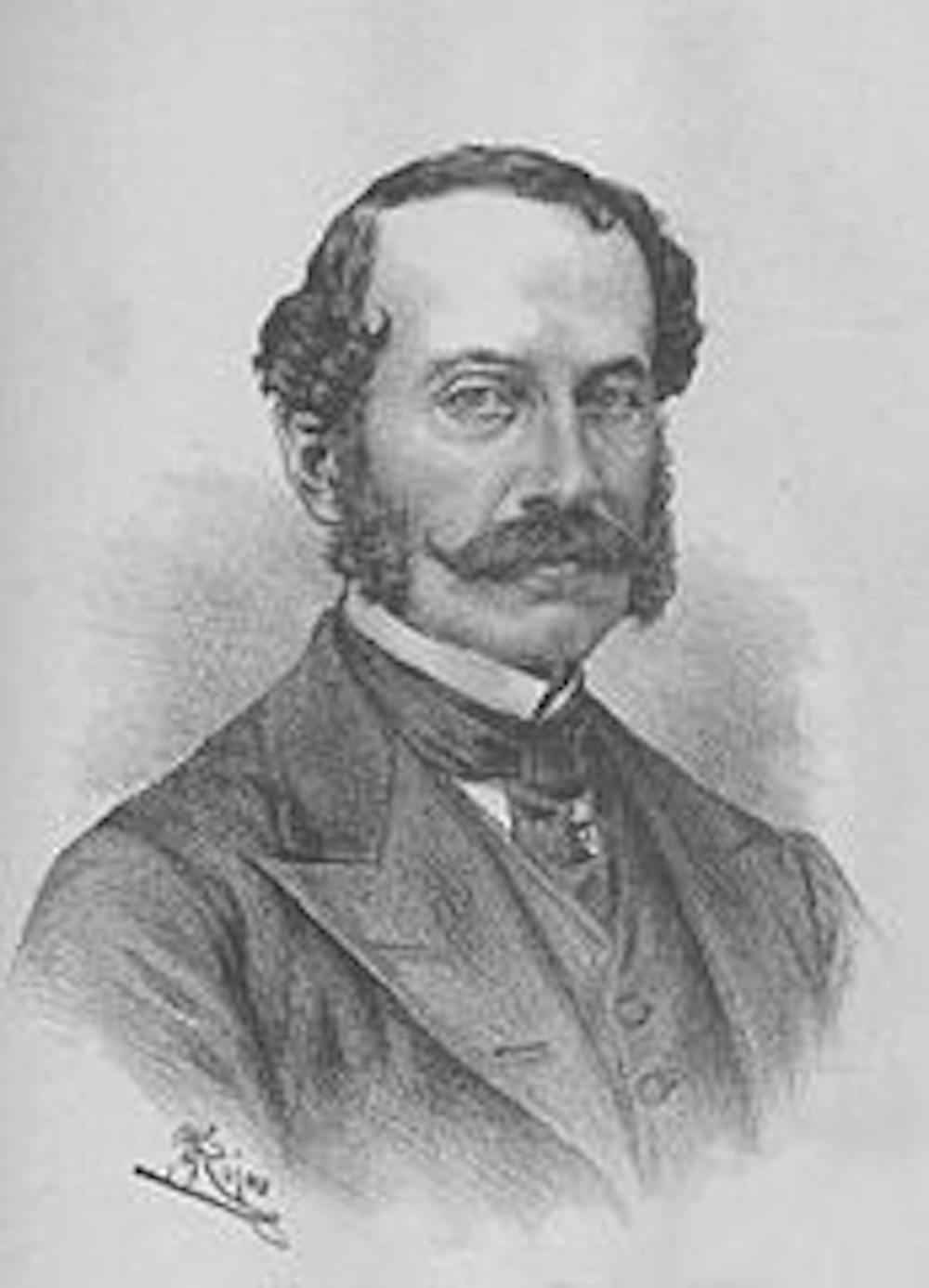As a politician in Chile in the 1850s, Geronimo Urmeneta 1835 took a uniquely progressive approach to his work as the country’s secretary of finance and as a primary cabinet member for former Chilean president José Joaquín Peréz, foregrounding Republican principles of individual liberty and patriotism. He would later go on to attribute his political successes, as well as his political ethos, to his time on College Hill, where he became Brown’s first Latin American graduate in 1835.
The University credits Urmeneta as an early player in its own “internationalization” and development into a global institution, according to a memo written by former University Head of Diversity and Inclusion Liza Cariaga-Lo for the University’s 250th anniversary celebration.
After graduating, Urmeneta spent a few additional years in the United States before eventually returning to Chile in 1850, where he became secretary of finance. He was granted this position by Pedro Nolasco Vidal, an influential Chilean politician of the time. “Since the minister of state is vacant in the Department of the Treasury, I have appointed to serve the citizen Sir Geronimo Urmeneta,” Vidal wrote in Spanish in his official announcement of Urmeneta’s new position. “Of (Urmeneta’s) aptitudes and patriotism I am fully satisfied,” he added. At the end of the letter, he advised Urmeneta to “be poised, take reason and communicate.”
Urmeneta took this advice in stride. His work back in his country of origin quickly garnered University interest and earned him first an honorary master’s degree in 1851, and later an honorary doctor of law degree in 1859. For his accomplishments both during and after his time at Brown, he is listed in the University's Phi Beta Kappa catalog as part of the class of 1835, with parenthetical references to his honorary degrees awarded in the 1850s. James Quayle Dealy, Harry Lyman Koopman and Wilfred Harold Monroe collaborated to retroactively publish this catalog in 1914.
While at the University, Urmeneta was a member of the United Brothers Society of Brown, according to a list of members published in 1848. According to the writings of former University Archivist Martha Mitchell in Encyclopedia Brunonia, “The United Brothers Society was formed in 1806 by students who had not been admitted to the existing society for debate and literary improvement, the Philermenian Society.” The club would meet in University Hall at midnight, with no light and guarded doors “to ensure the secrecy of their plan,” Mitchell added.
After gaining University approval from former University President Asa Messer in 1806, the group doubled down on their Republican political views — which were in part what prevented their admission to the Federalist Philermenians in the first place. The United Brothers “held its own exercises until 1841, when the United Brothers and the Philermenians began to have a joint celebration, at which the Brothers wore white ribbons to distinguish themselves from the Philermenians,” Mitchell wrote.
Urmeneta only arrived on College Hill in the 1830s, after the groups had conjoined. But the United Brothers maintained their dedication to the progressive, Republican ideals on which they founded the club, and which were becoming increasingly prevalent in the “new” curriculum created by former University President Francis Wayland, University Archivist Jennifer Betts wrote in an email to The Herald.
The 1830s liberal curriculum “would have focused on … classes in the liberal arts as well as some science classes,” Betts wrote. “The goal was to provide a liberal education with an emphasis on moral refinement, philosophy and rhetoric for future leaders.”
Urmeneta proved to be one of these leaders in his term as Chilean secretary of finance, during which he served as a crucial advisor to military and legislative leaders. In 1851, Urmeneta published a proposal suggesting that the Chilean government direct more of its funds toward international trade rather than toward the army.
“I have good reason to approve and sanction these (changes): Therefore I order that these funds be disseminated and take effect in all their parts as a law of the Republic (of Chile),” Urmeneta wrote in Spanish at the end of his official statement.
Later, in 1859, Urmeneta worked to orchestrate a treaty between Chilean President Manuel Montt and the United States and arbitrated by the king of Belgium regarding a trade dispute in Sitana, Peru (near the border with Chile), as reported in a historical issue of the New York Times.
After the end of Montt’s term, Urmeneta was appointed as the first seat in the new presidential cabinet of José Joaquín Peréz. “If he is controlling the spirit of the administration, we may look for the inauguration of measures of more freedom than has hitherto existed,” wrote a New York Times correspondent from Mendoza, Chile on June 3, 1861, prior to Urmeneta’s appointment.
Urmeneta’s reputation as a patriot and a champion of freedom made its way back to the University, reflected in correspondence with both Wayland and Barnas Sears, Wayland’s successor as University president. The University holds in its archives multiple letters written by Sears, in which Sears refers to Urmeneta as a “friend” and “colleague.”
In a letter to Wayland in December 1851 regarding his honorary master’s degree, Urmeneta wrote: “I shall ever look upon this testimony of esteem as highly gratifying. Coming as it does, from one of the first universities of the United States and from the hands of those who imparted the principles which have guided me in political life,” he added.
Urmeneta credits Wayland and the University for the founding principles of his political success. He returned to his home country with a degree and a multitude of new experiences.





